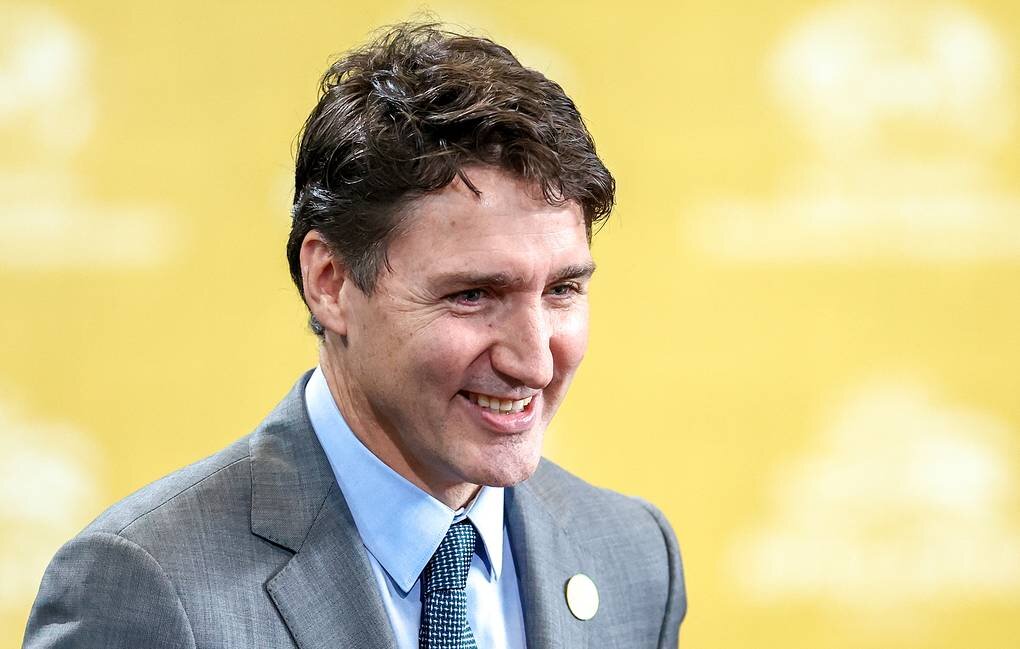Trudeau Vows Strong Retaliation Against US Tariffs: Canada’s Bold Response
In a significant move in the ongoing trade dispute, Prime Minister Justin Trudeau has announced that Canada will implement retaliatory tariffs against the United States, affecting a wide range of American goods. This decision comes in response to the recent trade actions taken by the US that have raised tensions between the two neighboring countries.
During a press conference, Trudeau stated, “I am announcing Canada will be responding to the US trade action with 25% tariffs against [Canadian] $155 billion worth of American goods.” The Prime Minister highlighted that the initial wave of tariffs will target approximately $30 billion worth of US products starting Tuesday, with additional measures affecting $125 billion in goods to follow in three weeks.
Trudeau emphasized the importance of providing Canadian businesses and supply chains with enough time to adapt, stating, “This will include immediate tariffs on [Canadian] $30 billion ($20.6 bln) worth of goods as of Tuesday, followed by further tariffs on [Canadian] $125 billion ($85.9 bln) worth of American products in 21 days’ time to allow Canadian companies and supply chains to seek to find alternatives.”
In addition to the tariffs, Canadian authorities are exploring the possibility of implementing non-tariff retaliatory measures. These could target critical minerals and energy sectors, further escalating the trade tensions between the two nations.
The backdrop to this situation involves US President Donald Trump’s recent executive order, which imposes a 10% duty on Canadian energy products and a 25% tariff on other goods. These new measures are set to take effect on February 4, intensifying the ongoing trade conflict.
Key Points of the Tariff Announcement
- Immediate Tariffs: Canada will impose 25% tariffs on $155 billion worth of American goods.
- Initial Target: The first phase includes tariffs on $30 billion worth of US products starting Tuesday.
- Future Measures: Additional tariffs on $125 billion worth of American goods will be implemented in 21 days.
- Non-Tariff Measures: Canada is considering potential non-tariff retaliatory actions in critical minerals and energy sectors.
- US Executive Order: President Trump has signed an order imposing 10% duties on Canadian energy products and 25% on other goods.
This escalating trade battle has raised concerns among businesses and consumers in both countries. The impact of these tariffs is likely to be felt across a variety of sectors, potentially leading to increased prices on goods and disruptions in supply chains.
Experts predict that the retaliatory tariffs could have a ripple effect on the economies of both Canada and the US. As each country seeks to protect its industries and workers, the potential for further escalation remains high. Economists warn that prolonged trade disputes may lead to reduced economic growth and job losses in both nations.
Trade relations between Canada and the US have been historically strong, but recent events have tested this bond. The imposition of tariffs signals a shift in the dynamics of this relationship, prompting businesses to reassess their strategies and supply chains.
Many Canadian businesses that rely on American imports are now faced with tough choices. Some may need to find alternative suppliers or adjust their pricing strategies to accommodate the increased costs associated with the tariffs. This could lead to a significant shift in trade patterns between the two countries.
On the other hand, American exporters may find themselves at a disadvantage in the Canadian market due to the tariffs. As Canadian consumers and businesses look for ways to avoid the increased costs, they may turn to products from other countries, impacting US companies that previously relied on sales to Canada.
As both nations navigate this complex trade landscape, the focus will likely remain on diplomatic negotiations and potential resolutions. It is crucial for both Canada and the US to find common ground to avoid further deterioration of their trade relationship.
In conclusion, the recent announcement of retaliatory tariffs by Canada highlights the ongoing tensions in North American trade relations. As the situation develops, stakeholders in both countries will be closely monitoring the economic impacts and potential for resolution. Continued dialogue and cooperation will be essential to mitigating the adverse effects of these trade measures.






